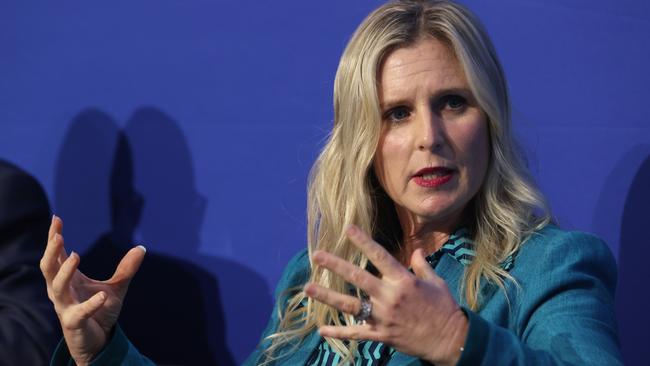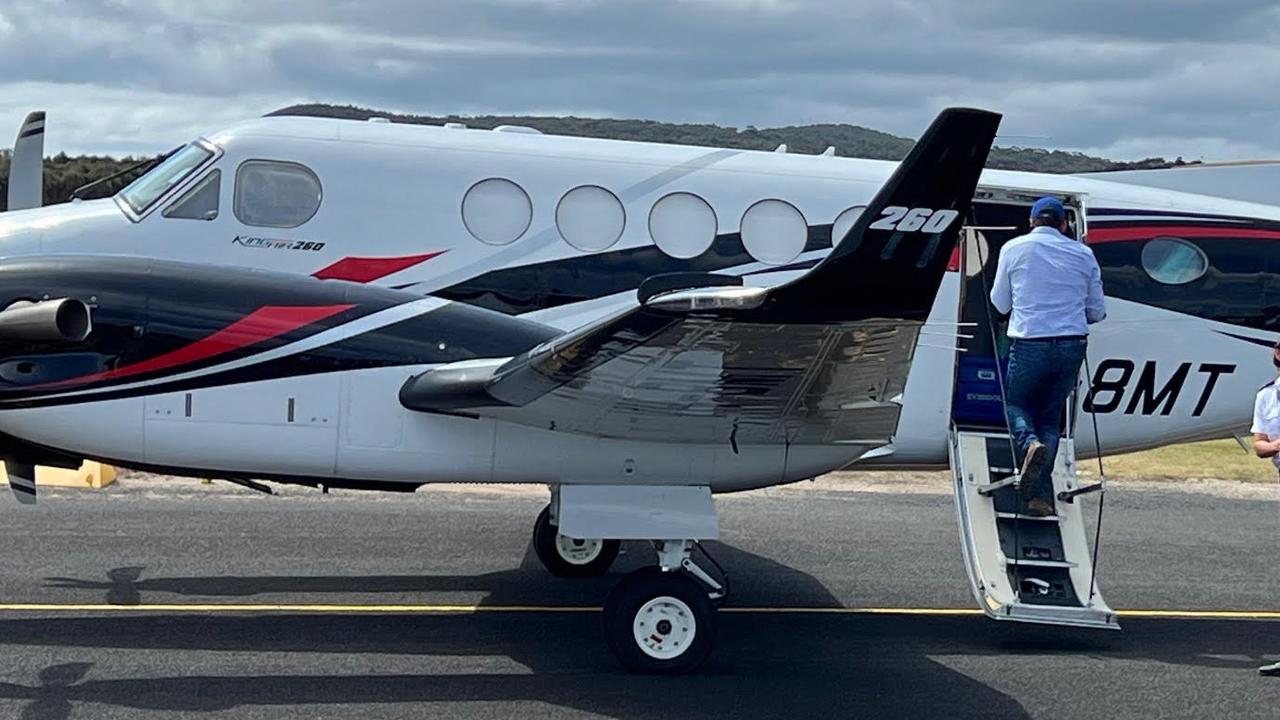ASIC to scrutinise super funds over mergers
As the industry battles member service failures, the corporate regulator is turning its attention to the rapid consolidation in the market.

Business
Don't miss out on the headlines from Business. Followed categories will be added to My News.
Super fund mergers are high on the corporate regulator’s hit list as the industry battles systemic failures in member services.
The Australian Securities and Investments Commission is part way through a deep dive of funds’ handling of death benefit claims following damning revelations last year, but is already looking ahead to its next area of concern: whether rapid consolidation in the market has delivered the promised member benefits.
“We have seen some examples of service delivery being impacted negatively when a trustee is going through a merger or successor fund transfer. We are also aware of a broader range of service-related complaints associated with these kinds of transitions, which are a cause of concern for fund members,” ASIC commissioner Simone Constant told The Australian.
“Like any large organisations, there may be challenges for super funds when different systems and processes are brought together through a change such as a merger, and they need to ensure member services remain paramount at all times.
“As the number of members moving from the accumulation phase into the retirement and drawdown phase increases there is an ever-greater demand being placed on funds and they need to ensure they have the systems and processes in place to manage this growth,” she said.
Funds have been in merger overdrive in recent years, spurred by APRA’s 2021 call for more tie-ups to rid the market of smaller, uncompetitive players, in what then deputy chair Helen Rowell said would ultimately be a win for members.
Putting pressure on the industry to consolidate faster, Ms Rowell in 2021 told smaller, underperforming funds to merge with their bigger peers rather than other small funds. Ms Rowell is now on the board of the nation’s second biggest fund, the $300bn Australian Retirement Trust.
“APRA doesn’t intend to let perfection be the enemy of the good. But we expect trustees to consider whether a small fund to small fund (or bus-stop) merger is going to tackle underlying issues or just be a temporary stop on the way to the ultimate destination of sustainability,” she said at the time.
This lit a fire under the industry: More than 45 fund mergers have taken place since mid-2021, with further consolidation to come. But the ‘bigger-is-better’ push has had its issues, including reports of some funds struggling with the back-office elements of the mergers.
“This is a complex area and can be impacted by a range of things from data quality issues to information management systems aligning through to claims and complaints handling processes,” Ms Constant said.
Australian Retirement Trust, itself the product of the biggest merger in the market formed by the 2022 tie-up of Sunsuper and QSuper, has been the most active in adding bolt-ons, merging with AV Super, Commonwealth Bank Group Super, Alcoa Super, and Woolworths and Endeavour Group Super, among others. It expects to tack on another fund — Qantas Super — in the coming months.
Other funds to merge include Club Plus and LUCRF folding into Australian Super, Media Super and EISS Super joining Cbus and Australian Ethical merging with Christian Super.
As funds have gotten bigger, customer service failings, such as long call wait times and errors in processing payments or fund transfers, have become more common. They also point to the risks that come with workers’ retirement savings being controlled by a handful of mega funds.
Figures released by the financial complaints ombudsman in November show super fund complaints around claims handling more than tripled between 2019 and 2024.
Of the 7300 complaints received last financial year, 1730 related to delays in claims handling, the Australian Financial Complaints Authority found. This was a dramatic rise from the 463 filed on the same issue five years prior.
The $330bn megafund AustralianSuper was the worst of the lot, with members of the fund – the nation’s biggest – raising more than 1500 complaints in the year.
This was the most of any super fund and three times higher than the second-worst performer on the complaints front, Australian Retirement Trust.
Cbus, sued by the financial regulator last year over alleged mishandling of death and disability claims, was the third-highest complained-about fund, notching up just shy of 500 complaints.
Fees charged to members post-mergers will be another area of focus for the regulator, following claims by funds that tie-ups would slash member costs along with delivering benefits of scale.
Annual fees for Australian Retirement Trust members jumped from around $470 to $507 in the past year, based on a $50,000 balance, with the fund putting the blame on a bigger push into higher-growth investments.
Even before the fee hike, the fund was on the higher end for fees when compared to its peers. AustralianSuper’s annual fee on a $50,000 balance is $387, while Unisuper charges members about $400 a year.
More Coverage
Originally published as ASIC to scrutinise super funds over mergers





